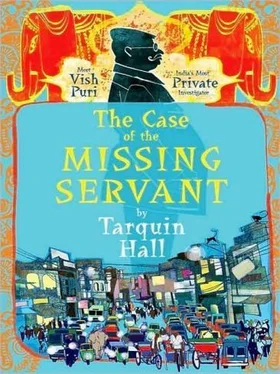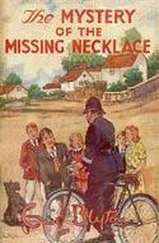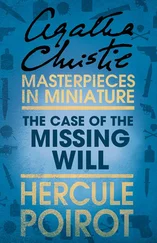Tarquin Hall - The Case of the Missing Servant
Здесь есть возможность читать онлайн «Tarquin Hall - The Case of the Missing Servant» весь текст электронной книги совершенно бесплатно (целиком полную версию без сокращений). В некоторых случаях можно слушать аудио, скачать через торрент в формате fb2 и присутствует краткое содержание. Год выпуска: 2009, ISBN: 2009, Издательство: Simon & Schuster, Жанр: Детектив, на английском языке. Описание произведения, (предисловие) а так же отзывы посетителей доступны на портале библиотеки ЛибКат.
- Название:The Case of the Missing Servant
- Автор:
- Издательство:Simon & Schuster
- Жанр:
- Год:2009
- ISBN:978-1-4165-8402-5
- Рейтинг книги:3 / 5. Голосов: 1
-
Избранное:Добавить в избранное
- Отзывы:
-
Ваша оценка:
- 60
- 1
- 2
- 3
- 4
- 5
The Case of the Missing Servant: краткое содержание, описание и аннотация
Предлагаем к чтению аннотацию, описание, краткое содержание или предисловие (зависит от того, что написал сам автор книги «The Case of the Missing Servant»). Если вы не нашли необходимую информацию о книге — напишите в комментариях, мы постараемся отыскать её.
The Case of the Missing Servant — читать онлайн бесплатно полную книгу (весь текст) целиком
Ниже представлен текст книги, разбитый по страницам. Система сохранения места последней прочитанной страницы, позволяет с удобством читать онлайн бесплатно книгу «The Case of the Missing Servant», без необходимости каждый раз заново искать на чём Вы остановились. Поставьте закладку, и сможете в любой момент перейти на страницу, на которой закончили чтение.
Интервал:
Закладка:
"Behind the dam lies what they call the 'tailing pond,'" said Father Peter. "No one is allowed there. But when I was a boy, we used to go up the hill and throw stones into the mud." He grinned impishly at the memory of his childhood escapade. "It's very thick. Sometimes when it is very hot, the surface is hard and cows stray across it and get sucked down."
Their destination was a hamlet that lay in the shadow of the dam.
By now, it was early afternoon and the sun was at its hottest. The little sandy lanes that ran between the mud and straw compounds were empty save for a few chickens.
Father Peter knocked on the first door and an Adivasi man with coal black skin, wearing a sarong and a baseball cap, answered. He was obviously delighted to see the priest and after a good deal more grinning and pleasantries, the detective was invited inside.
A large well-swept courtyard lay at the center of the house. On one side, rows of cowpats were drying in the sun; on the other grew a banana tree, holding up a direct-to-home satellite receiver dish.
Their host arranged a couple of chairs in the shade provided by the overhanging thatch roof and soon his daughter served them glasses of cold water and a packet of cream-filled biscuits.
The daughter was too young to be Mary and Puri quickly established that she had no sisters. But he went through the motions of taking out his notebook and inquiring about the family's financial circumstances.
The couple had had two other children, both boys. The elder was working down in the mines, where he loaded rocks onto a conveyor belt all day without any protective gloves or breathing apparatus; the other son had been born physically and mentally handicapped and died at the age of seven.
"What problems did they face?" Puri asked them.
The father made a face as if he did not know where to begin. Usually, he said, his words translated for the detective by Father Peter, he worked alongside his son in the mines. But he had been feeling weak for the past few months and had not been able to work. Because of this the family's income had been halved. Like seven hundred million other Indians who were yet to see the benefits of the country's economic growth, they were surviving on less than two dollars a day. To make matters worse, the water in their well had been poisoned by the chemicals from the tailing pond.
"They can no longer drink it," explained Father Peter, almost jovially. "But they still use it for washing."
"Have you thought about moving? It is dangerous to be here, no?" Puri asked them.
"This is the only land we have left," said the father. "The jungle is mostly gone and we have nowhere else to go."
Puri made a show of writing down more details and, before heading off to meet the next family, gave the father a thousand rupees. He also tried to impress upon him that it was hazardous to use the water from the well. But the man shrugged, resigned to his lot.
It was not until the following afternoon, when the detective and Father Peter arrived at the eighth and final home on the list, that Puri's search came to an end.
The house, which was much smaller than the others they had visited, stood next to a sal tree. In its shade a teenage girl and a young woman squatted playing a checkerslike game called Bagha-Chall, or Tigers and Goats. The board was a grid drawn in the sand; for game pieces they were using twenty-four little pebbles. In shape and color, they were indistinguishable from the ones Puri had found on the windowsill of the servant quarters in Raj Kasliwal Bhavan.
"Hello, Mary, God bless you," said Father Peter in Santhal, the local language, greeting them both with a big, friendly smile.
"Hello, Father." Mary, who was wearing an unusually large number of bangles on her wrists, beamed.
She stood up, brushing away the hair from her eyes with her left hand, and a few of the bangles slid down her arm toward her elbow, revealing a scar on her wrist.
"Is your father at home?" asked Father Peter.
"He's inside, sleeping," she said.
"Well, go and wake him, child. This gentleman has come all the way from Delhi and would like to speak with him."
Mary shot Puri a suspicious look.
"What does he want?" she asked.
"He's here to help us."
"How?"
"Now, don't ask so many questions, my child. Run along and bring your father," said the priest.
Puri watched Mary walk over to the house. She was an attractive young woman, slim, with dark brown eyes and long black hair tied in a ponytail. Her features, dusky and distinctly Adivasi, were strikingly similar to those of the murder victim dumped on Jaipur's Ajmer Road. "That poor girl has suffered a lot," the priest told Puri when she was out of earshot.
"What happened to her?"
"I hate to think. She won't tell anyone, not even her mother. Like so many of our young women, she went to the city to find work. When she came back a few months later, she could hardly walk. It's taken her weeks to recover, God protect her."
"How did she get here?"
"The Lord was watching over her. She collapsed at Ranchi station, but a member of our community took her to a hospital."
Soon, Puri was sitting on a mat on the floor inside the house with Mary's father, Jacob, asking questions about the family's circumstances. Mary sat in the doorway listening to their conversation and sifting through a pot of lentils. All the while she watched Puri suspiciously.
Like most of the men Puri had interviewed in the past 24 hours, Jacob worked in the mines, which provided just enough money to feed the family. But he was getting old and complained that he had no son to help him. Last year, after the family's rice crop failed, he had sent his eldest daughter to the city to work. For a while, she sent money home.
"But she became sick and returned," said Jacob. "Now I'm afraid my health will give out and we will all starve."
Puri made a note of this and then explained to Jacob that he ran a charity willing to provide the family with assistance. He made a show of taking out a calculator and punching in some figures and then announced that because they had no sons, they were eligible for an immediate payment of four thousand rupees. This was more than Jacob made in a month, and the sight of so much cash left him speechless. He took the wad from Puri with tears in his eyes and said to Father Peter, "It is a miracle!"
Puri accepted the family's invitation to stay for dinner and, before the sun went down, managed to snap a surreptitious picture of Mary with his mobile phone.
After dark, by the light of a paraffin lantern, they sat eating a simple meal of fish, rice and daal. The food, which was prepared by Mary and her mother, was delicious. Throughout the meal, Puri complimented the cooking and ate seconds and thirds.
Afterward, as he, Jacob, Father Peter and the driver, who had joined them, shared the priest's pipe, he made his host an offer:
"I would very much like to give your daughter a job working in my house in Delhi," he said. "The salary would be four thousand rupees a month and she would stay in the servant quarters."
Mary looked horrified by this suggestion. "No, Father, I won't go!" she protested immediately.
Puri ignored her protest, adding, "Of course, I can understand why you would be concerned about her safety. You are welcome to bring her there yourself. I will provide the train tickets and we can all travel together. Perhaps Father Peter would like to come as well and we can find him a new cross for his church?"
The detective knew it was too good an offer for Jacob to turn down. It was the answer to all his prayers.
Sure enough, despite Mary's misgivings, her father soon agreed to Puri's terms. They would leave for Delhi the next day.
Twenty-Three
Интервал:
Закладка:
Похожие книги на «The Case of the Missing Servant»
Представляем Вашему вниманию похожие книги на «The Case of the Missing Servant» списком для выбора. Мы отобрали схожую по названию и смыслу литературу в надежде предоставить читателям больше вариантов отыскать новые, интересные, ещё непрочитанные произведения.
Обсуждение, отзывы о книге «The Case of the Missing Servant» и просто собственные мнения читателей. Оставьте ваши комментарии, напишите, что Вы думаете о произведении, его смысле или главных героях. Укажите что конкретно понравилось, а что нет, и почему Вы так считаете.












